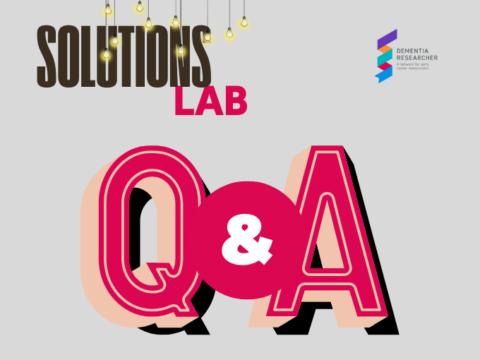With my child’s first birthday fast approaching, it’s now almost a year since I started this series of blogs on parenting and academia. In this month’s post, I’ll be thinking about the plague of perfectionism, and how easy it can be to become unmoored.
I have to admit that I am something of a perfectionist. When I was a teenager, it would be the classic attribute to throw into an interview when asked about my weaknesses – the obvious way of trying to suggest that you, in fact, have no faults. Unfortunately, it really is something of a weakness, mainly because in my case it can lead to a real loss of confidence or unnecessary anxiety. When I started working at UCL, prior to starting my PhD, I had been out of the research game for quite a while. I was taking a leading role in the qualitative side of our mixed-methods study, and while I had interviewed participants before, and had used thematic analysis, I was really lacking in confidence. Where quantitative approaches seemed more definitive to me, in terms of there seeming to be an absolute right and wrong answer, this piece of work injected an element of subjectivity that suggested I may not be able to do it perfectly. You can’t produce the right codes, or the right themes: there’s no such thing.
Thankfully, I worked with a really supportive and helpful team so, two and a half years later, by the end of the piece of work I felt really pleased with what we’d achieved, and definitely a lot more confident in the methods we’d been using.
When I started the PhD, it’s no surprise that I became unmoored again – particularly as I was having to start from scratch with a new methodology. But like with my previous research position, it wasn’t too long until I was in the swing of things. By the time I went on maternity leave, I was feeling pretty confident as to the course my PhD would take.
I wouldn’t go so far as to say that pride comes before a fall, but it’s fair to say that the two months since I’ve returned to work have been up and down. A lot of my time since I’ve been back has been spent finalising the systematic review that I was working on prior to leave. My office mates would tell you that my perfectionism has been something of a hindrance there, constantly second-guessing decisions I’ve made, redoing bits of the process to make sure I’ve done things ‘right’ – and forcing them to be party to what would usually be my inner monologue. I’m sure my husband neither knows nor cares what my systematic review is about (or probably what it is), but he was pleased a fortnight ago when I told him I was finally happy with my analysis, and was confident that I would be able to complete the write-up within the next couple of weeks. That week, I was capable of completing a PhD. I was capable of doing it well. Last week was another question entirely. Out of nowhere, I felt like I had no idea what I was doing again – or rather, that I suddenly had more questions than answers when it came to my work. I had reason to read a couple of chapters of someone else’s thesis that were relevant to my work, and just couldn’t see how I could ever become so expert in my topic. It didn’t seem possible.
This type of thinking, of imposter syndrome, obviously isn’t unique to me. But I do feel like it has been exacerbated by my new dual role. Where I have the occasional week lacking confidence in my ability as a researcher, I have at least as many doubting my competence as a parent. The last few weeks have been quite tricky in our household, I have to admit. While our 11-month-old is now quite confident on his feet, pulling himself up on the furniture and trying to grab everything in sight, for a good month he was an absolute liability, constantly throwing himself over, always risking bashing his head even if he seemed to be sitting calmly, or even if we had one hand on him. He couldn’t be out of our sight for even a few seconds. For some reason I found it really challenging – he didn’t care about his books or games anymore, he didn’t want to be held, he just wanted to put himself into any dangerous situation available. At the same time, he picked up a chest infection that didn’t bother him too much during the day, but meant he went from sleeping through the night to waking up three, four, five times every night. This possibly all sounds manageable, and it would have been, if it weren’t for the fact that I picked up an injury playing football and ended up on crutches for a week. I felt absolutely incompetent. I couldn’t do anything right.
Things have moved on again – over the last week our little boy (barely a baby anymore) has become more steady on his feet, is interested in his books and toys again, and his health and sleep are improving. This weekend he’s laughed more than he ever has, so I suppose we’re doing something right.
If I were to map the weeks against each other, I can imagine that I would see a correlation between my confidence at work and my confidence at home.
When I’m trying to master all these new things, it’s easy for my confidence to take a hit, and for that to bleed into all the different aspects of my life. There is a newfound vulnerability to me since becoming a parent: the balance seems so much finer, the smallest thing can affect your equilibrium. It would be unwise for me to aim for perfection in my PhD, and even more so in parenting – comparison is a killer, and my journey in both will be different to my peers. Plus, when I look back at where I was at the start of each of these processes, I’ve come a long way and there is a lot to be proud of. So this will be an exercise in resilience-building. One way or another, I’ll see it through.

Emily Spencer
Author
Emily Spencer is a PhD Student at University College London looking at improving how GPs communicate with people with dementia and their family carers about their future care. Emily previous had a 5 year career break to pursue a career as a musician, and has previously undertaken research on improving the care people with dementia receive from their GP practice, as well as end-of-life and palliative care provision in the community. Emily is also a new mum and will be writing about her experiences navigating motherhood and a research career.

 Print This Post
Print This Post





My son is 4 and I can very much relate to this!!